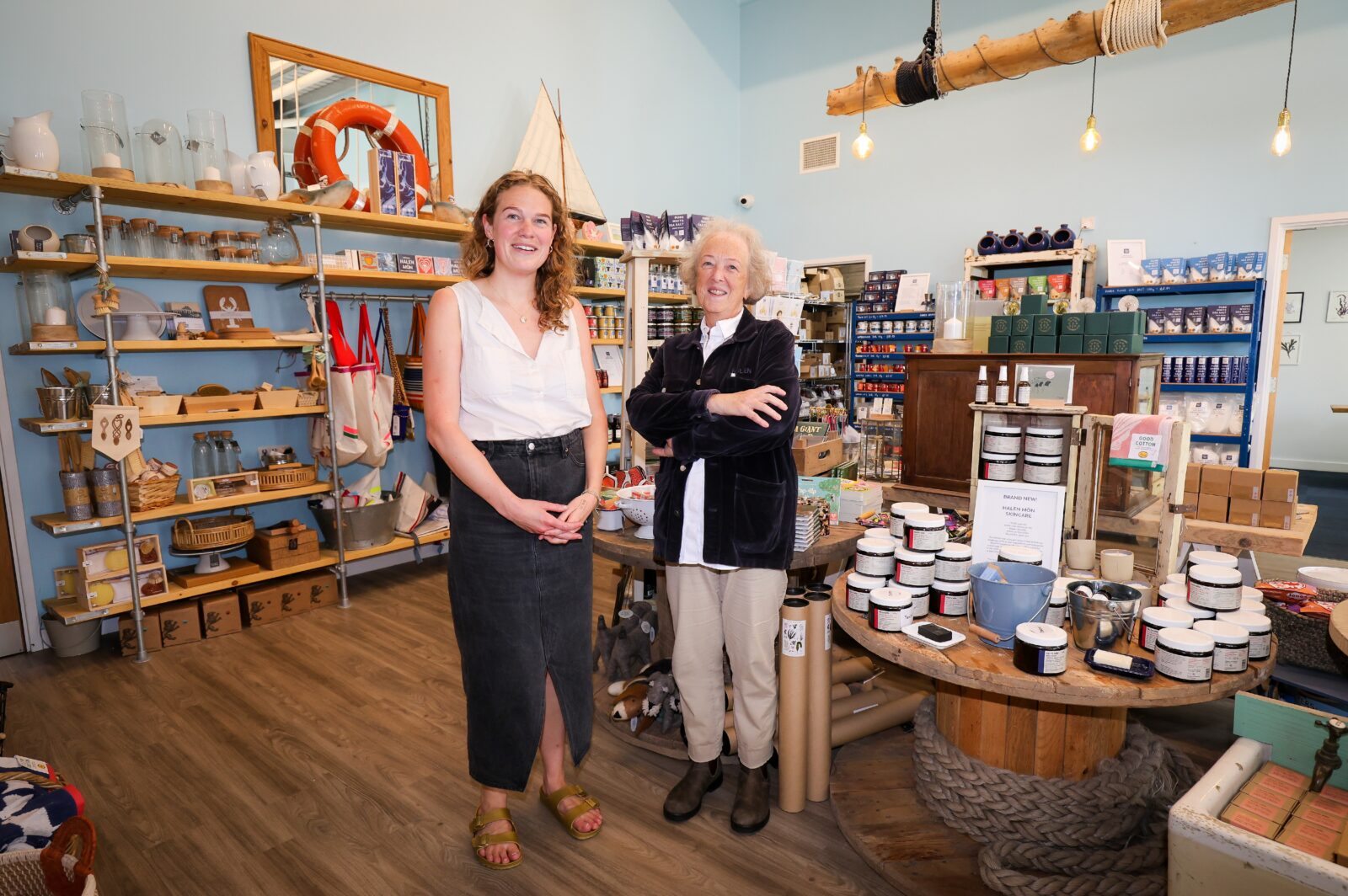One of Wales’ most recognisable brands has taken the next step in its decarbonisation journey, with green loan backing from the Development Bank of Wales.
Set up by couple David and Alison Lea-Wilson in 1996, Halen Môn is an internationally recognised business, which has gone on to make waves worldwide as a foodie’s favourite. Its products were served at the London 2012 Olympics and have been on menus at some of the world’s top restaurants, including The Fat Duck.
Halen Môn sea salt carries Protected Designation of Origin (PDO) status in Europe and the UK, recognising the unique nature of its produce. It also supplies major supermarkets including Waitrose and Marks & Spencer.
The business, which exports sea salt harvested in Anglesey around the world, has fitted the roof of Tŷ Halen, its Brynsiencyn-based visitor centre, with a new 100kw solar panel system. In addition to being the heart of Halen Môn’s salt-harvesting business, the visitor centre at Tŷ Halen also provides a shop, education centre, seaweed bathing and a community hub.
The installation of the new panels and accompanying generation system was supported by a £77,000 loan from the Development Bank, via the Welsh Government-backed Green Business Loan Scheme. It’s estimated that in addition to making a carbon saving of more than 380 tonnes (per year), the new panels will make a significant contribution to the centre’s energy needs, while also allowing the business to export excess energy back to the grid. The new PV system was designed and installed by another North Wales business, St Asaph-based Hafod Renewable Energy.
Given its place at the heart of one of Wales’ most impressive natural environments, David and Alison have long been keen to ensure the business is a carbon-friendly one, and the new panels will help them to take their next steps as they look to cut carbon emissions and save energy.
Alison Lea-Wilson, co-founder of Halen Môn, said: “Given the amount of roof space on our saltcote and visitor centre at Tŷ Halen, having solar panels installed at the site to cut our carbon output and our energy bills was an obvious next step, and the support provided via the Green Business Loan Scheme was exactly what we needed.
“We are really pleased to have worked with both the Development Bank of Wales and Hafod Renewable Energy to get the new system installed. Given the role the Menai Strait and the surrounding area plays in Wales’ natural environment, we want to make sure that we do everything we can to have as little an impact as possible on that environment and know that’s important to our customers too.”
John Babalola, Assistant Investment Executive with the Development Bank of Wales, said: “Working with the team at Halen Môn was a pleasure. They’re one of Wales’ most recognisable brands and this is one of a number of investments the business has received from the Development Bank of Wales, and we’re proud to have supported them with the Green Business Loan Scheme as they progress in their decarbonisation journey.”
The Green Business Loan Scheme is open to businesses throughout Wales who are looking at cutting their carbon footprint or reducing their energy use.








Leave a Reply
View Comments